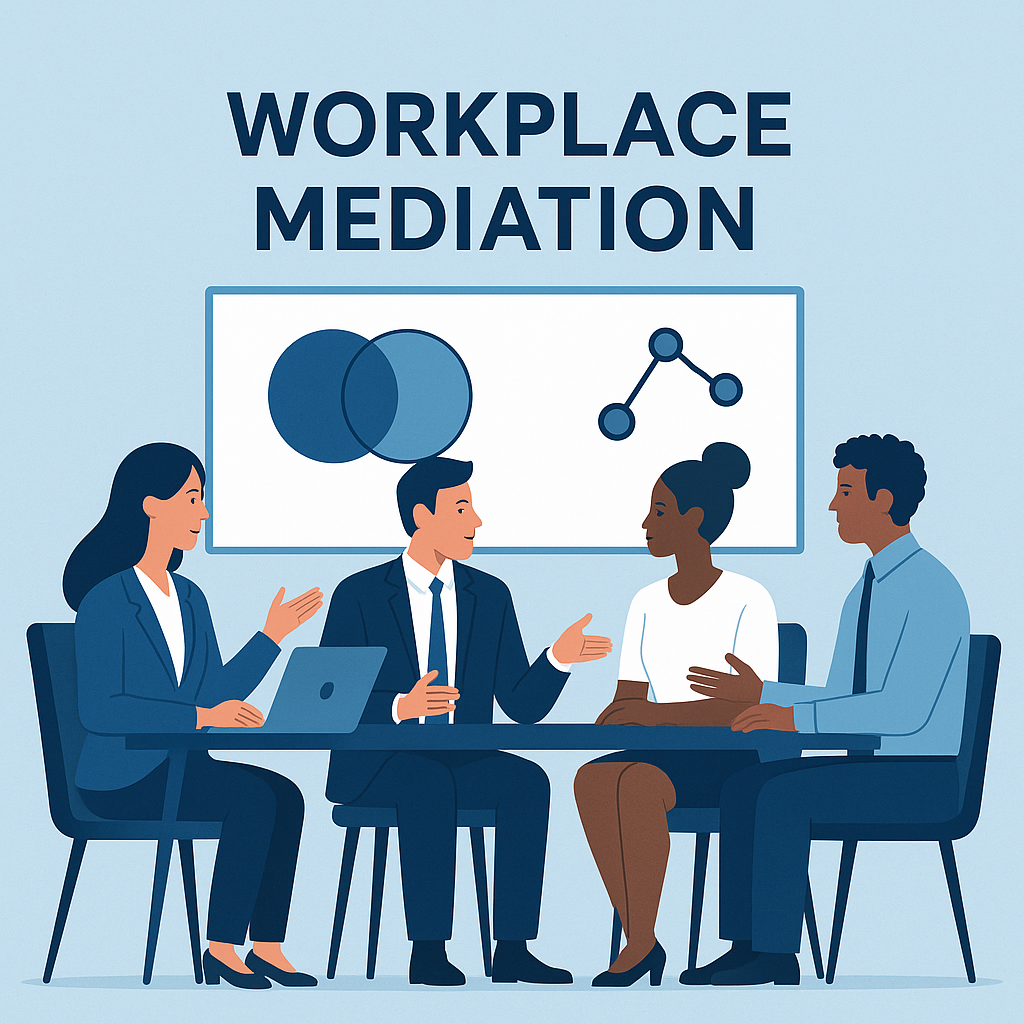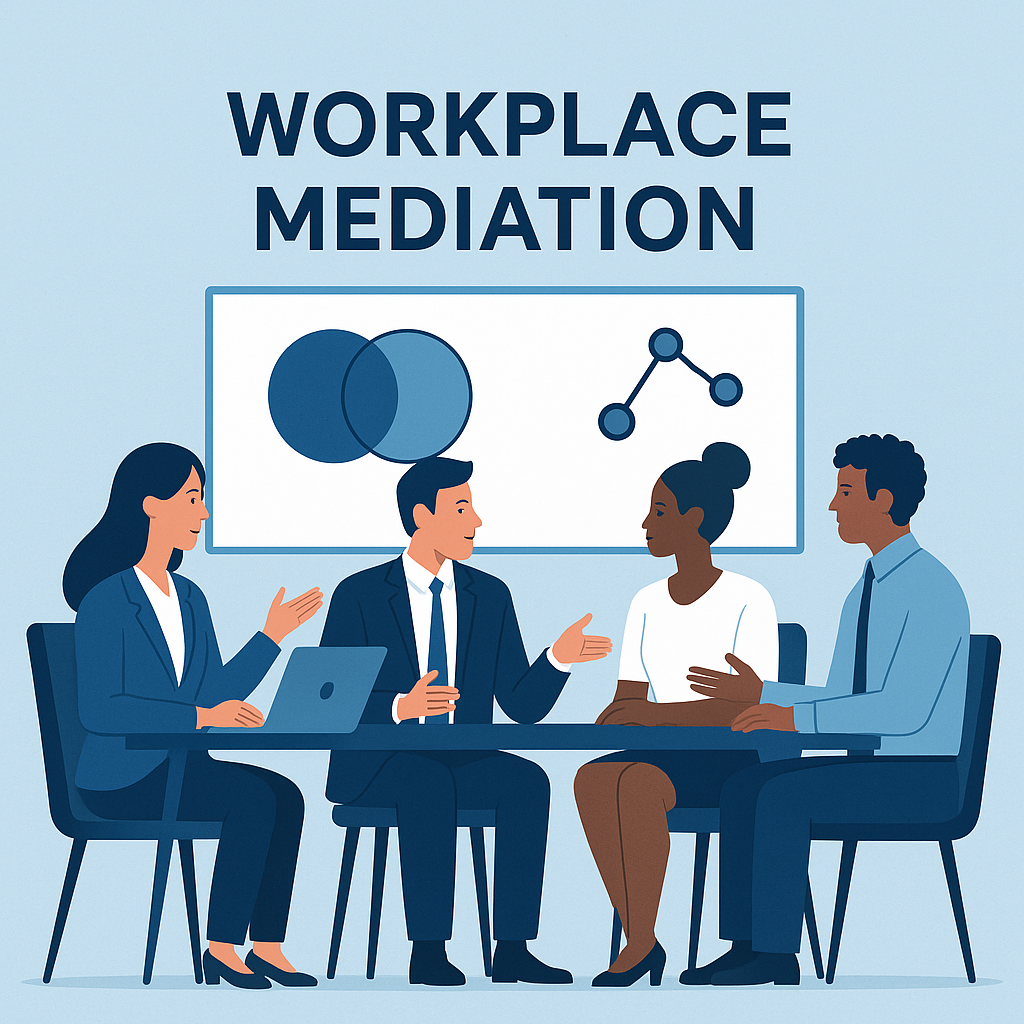What Is Workplace Mediation?
Workplace mediation is a confidential, structured process that helps people in conflict reach mutual understanding and agreement.
Unlike formal investigations or disciplinary pathways, mediation focuses on:
- Restoring communication
- Clarifying misunderstandings
- Identifying shared goals
- Creating agreed ways forward
A neutral mediator facilitates the discussion, ensuring every voice is heard respectfully and that both parties help shape the solution.

The Collaborative Process in Workplace Mediation
Traditional approaches to conflict often centre on blame or “who’s right.”
A collaborative process shifts the focus to shared outcomes and future-focused dialogue.
Key elements include:
- Neutrality: The mediator has no stake in the outcome.
- Voluntary participation: Each person chooses to engage.
- Mutual respect: Each perspective is acknowledged.
- Future orientation: The emphasis is on repairing, not rehashing.
When employees feel heard, they’re far more likely to take ownership of positive change.
The Benefits of Workplace Mediation for Teams and Organisations
A collaborative mediation process creates ripple effects across the workplace:
- Improved communication: People rebuild trust and speak openly.
- Reduced stress and absenteeism: Emotional strain decreases when issues are resolved constructively.
- Stronger team culture: Teams learn practical tools for respectful dialogue.
- Cost savings: Early resolution avoids the expense of formal grievances or turnover.
In short, mediation supports both wellbeing and productivity.
The Workplace Mediation Process
- Pre-mediation meetings – Each participant meets privately with the mediator to share their perspective and goals.
- Joint session – The parties meet together in a supported environment to explore issues, identify common ground, and develop solutions.
- Agreement and follow-up – The mediator helps record commitments or next steps to maintain accountability and clarity.
This framework provides structure without taking away flexibility — each conversation is unique.
When to Consider Workplace Mediation
Mediation is particularly valuable when:
- Communication has broken down between colleagues or leaders
- Performance or morale is being affected by unresolved tension
- A formal complaint may not be necessary but intervention is needed
- You want to preserve working relationships rather than sever them
Early intervention prevents minor issues from escalating into larger conflicts.
Building a Culture of Collaboration
While mediation resolves immediate challenges, the broader goal is to embed collaboration into workplace culture.
Training in emotional intelligence, communication, and leadership ensures teams can address differences before they harden into disputes.
Final Thoughts on Workplace mediation
Workplace mediation is more than conflict resolution — it’s a pathway to stronger, more connected workplaces.
When people work together instead of against each other, organisations thrive.
If your team could benefit from a confidential, structured mediation or training in collaborative communication, reach out to Your Negotiator to start the conversation.


Hi, this is a comment.
To get started with moderating, editing, and deleting comments, please visit the Comments screen in the dashboard.
Commenter avatars come from Gravatar.